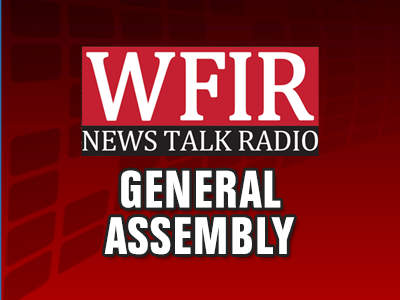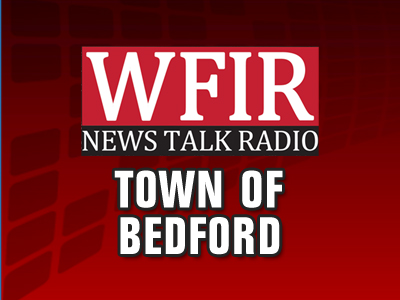 Poll from Roanoke College: Vice Mayor Joe Cobb holds a 24-point lead over former Mayor David Bowers and Councilwoman Stephanie Moon Reynolds in the race for mayor of Roanoke, according to the Roanoke College Poll. Cobb has the support of half of likely voters (50%), while Bowers polls at 26% and Moon Reynolds trails with 18%.
Poll from Roanoke College: Vice Mayor Joe Cobb holds a 24-point lead over former Mayor David Bowers and Councilwoman Stephanie Moon Reynolds in the race for mayor of Roanoke, according to the Roanoke College Poll. Cobb has the support of half of likely voters (50%), while Bowers polls at 26% and Moon Reynolds trails with 18%.
In the race for three open city council seats with no incumbents, Terry McGuire (54%) and Phazhon Nash (51%) lead the pack, while the contest for the third seat appears to be close between Evelyn Powers (35%), Benjamin Woods (34%) and Nick Hagen (33%), with Jim Garrett close behind (28%). Cathy Reynolds trails with 10%.
The Institute for Policy and Opinion Research (IPOR) at Roanoke College polled 655 likely registered voters in Roanoke City between Oct. 22 and 27, 2024. The survey has a margin of error of 4.8%.
Favorable/Unfavorable and Familiarity
Favorability ratings for the mayoral candidates range from 47% for Cobb to 27% for Moon Reynolds and 22% for Bowers. Bowers is the only candidate “underwater” with 43% of likely voters holding an unfavorable view of him. Moon Reynolds is not as well-known as her opponents, with 40% unable to register either a favorable or unfavorable view of her.
The most familiar council candidates are Powers (72% very or somewhat familiar), McGuire (61% somewhat or very familiar) and Nash (54% very or somewhat familiar). Less recognizable are Hagen (37%), Garrett (33%), Woods (27%) and Reynolds (16%).
The Issues
Economic development was chosen as the most important local issue by 23% of likely voters, followed by crime (19%), homelessness (16%) and housing (14%). Other issues listed as most important included education (9%), city hall management (6%), zoning (5%) and jobs (2%).
A plurality of likely voters (39%) thinks the land across I-581 from Valley View Mall should be preserved, but nearly one-third (32%) think it should be developed. Just less than half of those polled (47%) disagree with the recent decision to eliminate single-family-only zoning to allow for more multi-family units, while more than one-third (35%) agree with the decision. Likely voters strongly prefer that the new council select the next city manager with nearly three –in four (74%) choosing that option over having the current council pick the next city manager (9%).
Analysis
“The mayoral election does not appear to be close, but at least one of the seats on city council may be a nail-biter,” said Dr. Harry Wilson, senior political analyst for IPOR and professor emeritus of political science at Roanoke College. “Joe Cobb’s lead looks to be insurmountable. While McGuire and Nash hold strong leads for the first two council seats, four candidates are within striking distance of claiming the third seat. The Democratic ticket is strong, as expected in the heavily Democrat city, but a Republican or independent might win that third seat.”
“While Benjamin Woods is being aided by his party affiliation, Evelyn Powers is using her name recognition to overcome both party and ballot position,” Wilson said. “Perhaps the biggest surprise is that almost half of the likely voters have already cast their ballot.”
This marks IPOR’s first poll focusing on local elections in Roanoke City. For over 30 years, the institute has conducted statewide surveys on politics, consumer sentiment and other issues of importance in Virginia.
The Roanoke City Council poll was a partnership of Roanoke College and The Roanoke Rambler, which together co-sponsored the project.
“This was a welcome opportunity to expand our community partnerships and provide an important public service,” said Dr. David Taylor, director of IPOR and associate vice president for academic operations at Roanoke College. “Both IPOR and the college as a whole are committed to collaborating with learners, organizations and governments across the Roanoke Valley to serve our community’s needs. We are excited to partner with The Roanoke Rambler on this close look at the Roanoke City Council.”
The Roanoke Rambler, a hyper-local, online news site covering Roanoke City, approached IPOR about conducting a local poll in the lead-up to the City Council elections. Founder and editor Henri Gendreau said it was a valuable opportunity to gain insight into the electorate’s mood on pressing civic issues. Few communities the size of Roanoke have access to public polling data on local matters.
“Roanoke has been galvanized by a three-way mayor’s race with well-known candidates,” Henri Gendreau, publisher of The Roanoke Rambler, said. “The poll shows that the Democratic nominee appears to retain a significant share of the city’s Democratic-voting electorate, which was 61% in the 2020 presidential election.”
“Though Roanoke City Council has said it plans to hire a new city manager this year, Roanoke voters overwhelmingly think the City Council elected next week should make that decision, the poll shows,” Gendreau said. “Among several other local issues asked of Roanoke voters, that viewpoint garnered the most consensus.”
Interviewing for the Roanoke College Poll was conducted by The Institute for Policy and Opinion Research (IPOR) at Roanoke College in Salem, Virginia, between Oct. 22 and 27, 2024. The sampling frame of registered voters was provided by L2 and augmented by Marketing Systems Group. Text messages were sent to randomly selected voters with an invitation to complete the survey on their own. Respondents were invited to opt out of taking the survey and from being interviewed on the phone.
Four attention checks, survey completion time, and a manual review of all data were used to ensure quality control and data integrity.
Questions answered by the sample of 655 respondents are subject to an error margin (including design effect) of plus or minus 4.8% at a confidence level of 95%. This means that in 95 out of 100 samples such as the one used here, the results should be at most 4.8 percentage points above or below the figure obtained by interviewing all Roanoke City registered voters. Where the results of subgroups are reported, the error margin is higher.
The data were statistically weighted for gender, race, age and political party affiliation. Weighting was done to match the demographics of the Roanoke City residents who voted in the November 2020 general election. The design effect was 1.590.



